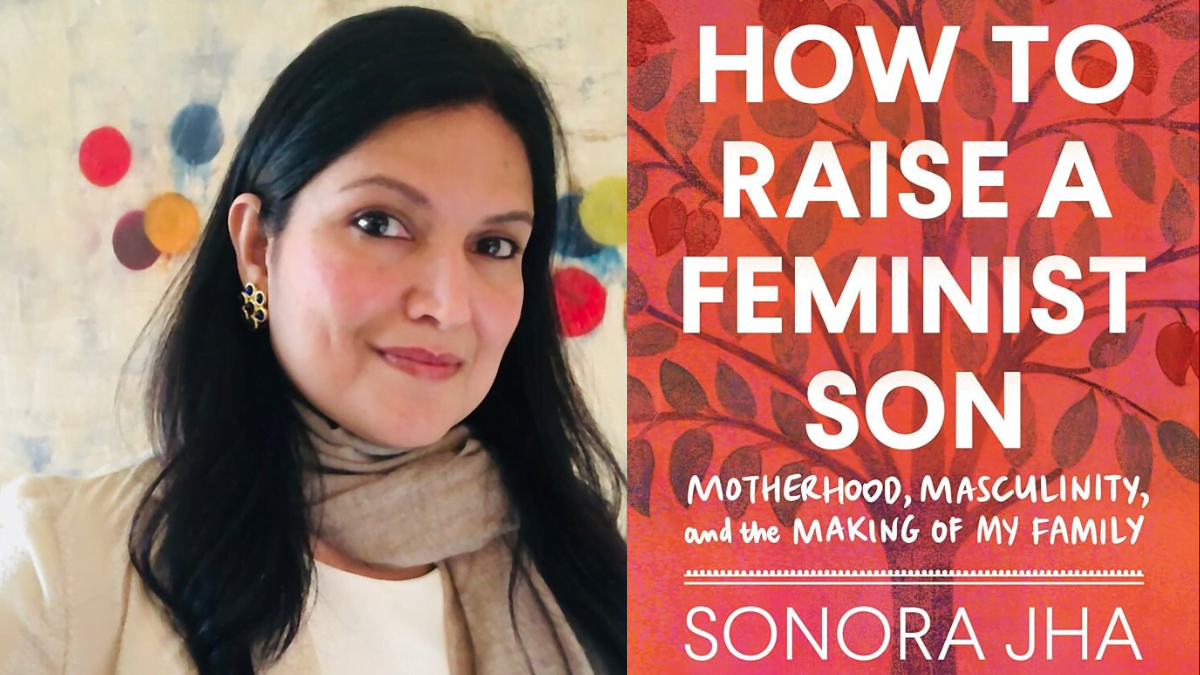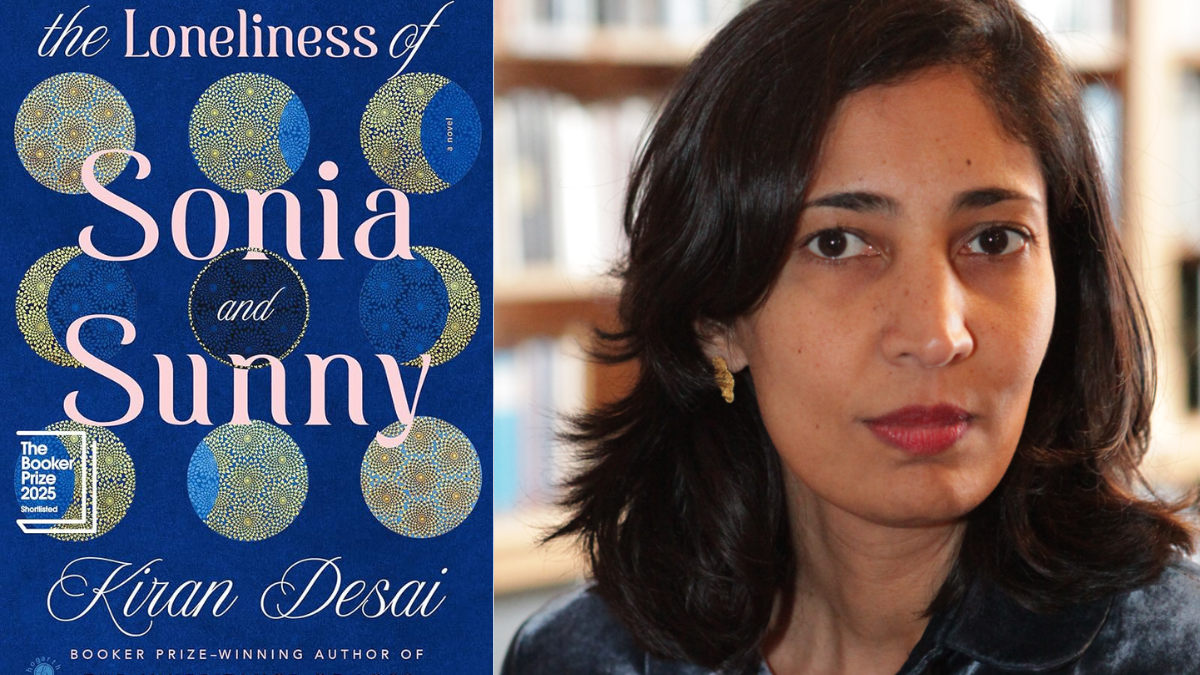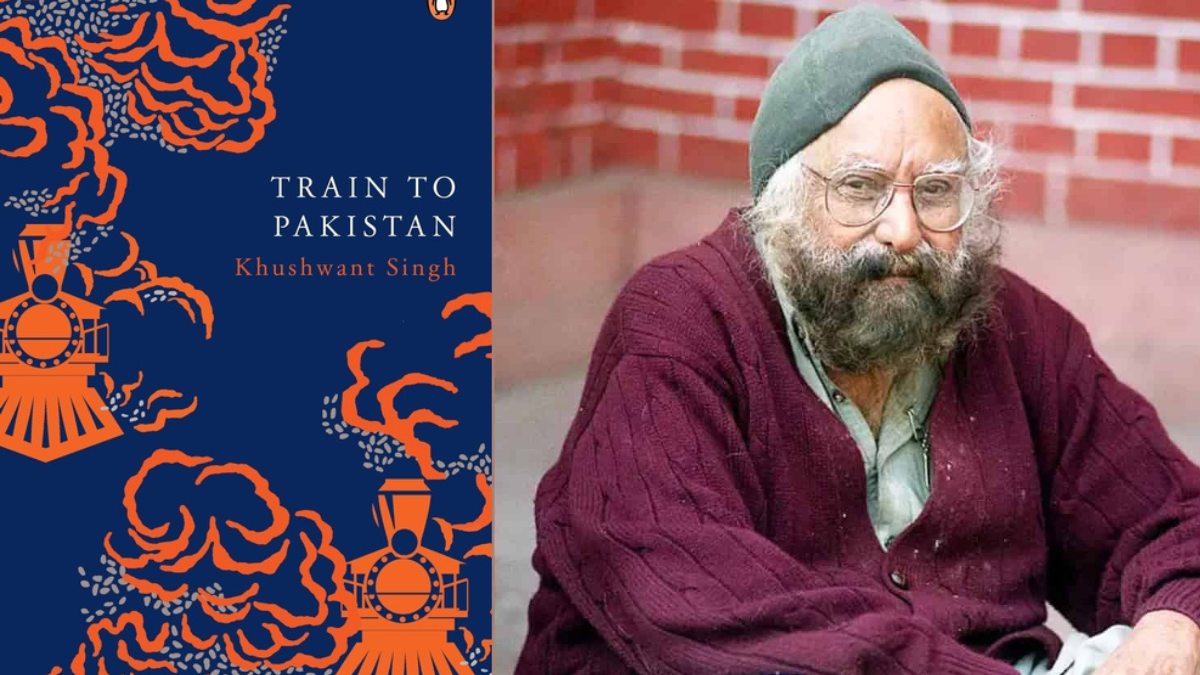Sonora Jha’s “How to Raise a Feminist Son” is a powerful manifesto that challenges the toxic masculinity ingrained in society and advocates for raising sons with empathy, compassion, and respect for women’s rights.
Jha recognises that change starts from childhood, breaking down societal norms and structures that perpetuate misogyny. Through her insightful prose, she provides a roadmap for parents to instil feminist values in their sons, embracing diversity, and fostering an intersectional approach to feminism that amplifies voices from different sexual orientations, races, and marginalised communities.
The author’s vision
Sonora Jha’s “How to Raise a Feminist Son” is a deeply personal and empowering narrative that draws from the author’s own experiences as a single mother raising a feminist son. Informed by her work as a professor of journalism specialising in social justice movements and social media, as well as conversations with psychologists, experts, and other parents, Jha takes readers on an electrifying journey.
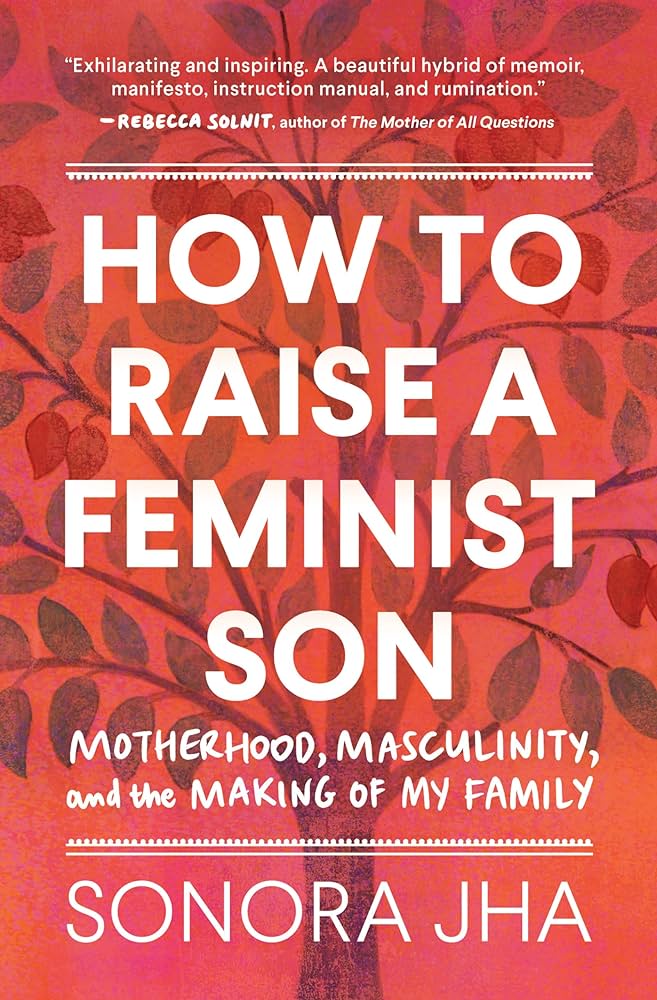
Through stories from her own life and wide-ranging research, she navigates the complexities of counteracting problematic messages from the media, well-meaning family, and the culture at large. Jha recognises the big work that lies ahead when it comes to raising kind, consenting, and socially conscious boys in a world that often reinforces toxic masculinity.
Set against the backdrop of her struggles, failures, and eventual triumphs, Jha’s book offers a love story that will resonate with feminists who hope to change the world, one kind boy at a time. With actionable advice and much-needed insight, “How to Raise a Feminist Son” serves as a tour de force, empowering parents to be better feminists and better teachers of the next generation of men.
Women are conditioned to be obedient wives, confined within societal norms that serve men’s desires, while men are allowed to grow into “savages” embracing toxic masculinity. Feminism upholds equality across all human rights and experiences. Yet, privileged men resist change, fearing women will surpass their entrenched entitlement. This insecurity breeds resistance to dismantle the toxic masculinity that entraps them. The rallying cry demands rejecting socialisation that curtails women while granting men unbridled freedom – a paradigm detrimental to all. Perpetuating misogyny harms everyone. Men must escape this cage before it consumes them wholly.
Sonora Jha, an acclaimed author and professor of journalism, brings her wealth of experience and insights to this remarkable book. Drawing from her journey as a mother and a feminist, she weaves a compelling narrative that resonates with readers seeking to raise socially conscious and empathetic sons.
A roadmap for feminist parenting
Sonora Jha’s question, “Can boys be feminists?” has a deafening roar as an answer: YES.
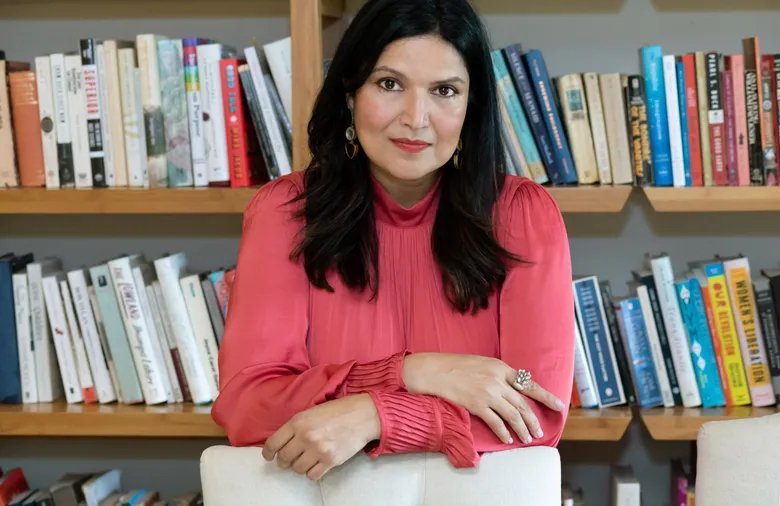
But change is a meditative process, it starts slow and takes a long time. To learn and unlearn male privilege, to know and listen to female voices, to learn to step back and let them have the stage, to kick off the pedestal and stand on common ground, this all takes patience, immense patience, years of knowledge and a lifetime of dedication. That is how a Feminist Son(s) can be raised.
But what and who is a feminist son? A man whose “compassion, empathy and kindness is turned, in its attention, to the female condition, to the condition of half of humanity.” A man who “is alert to misogyny.”
Jha knows this very well, that this change needs to start right from childhood, to break the structures and norms and allow radical changes to seep in: to allow boys and girls to play what they wish to, to allow them to learn and co-exist together and equally, to allow them to dream how they wish to and want to be. ‘My boy wears pink‘ can be a good starting point but to grow and respect that pink, that’s what is important.
But what and who is a feminist son? A man whose “compassion, empathy and kindness is turned, in its attention, to the female condition, to the condition of half of humanity.” A man who “is alert to misogyny.”
Raising such a man is not an easy task. Oh, did you feel it’s easy, it’s not. Not in today’s world. Media perception is forced down the throats of children, their freedoms and ideas are controlled, whipped and confined. Liberation from these chains of ages of oppression that directly and indirectly affect both sides, needs to be broken down. The tears are needed to turn into flames. When life serves you lemons, you need to make them learn how to make lemonade. But the recipe for this lemonade is not that obnoxious or sophisticated.
I am taking some points from Sonora herself:
- Question your values and viewpoints. Where do I stand? Why do I believe in feminism? Am I a feminist?
- Ask the question: I want to raise a feminist son because…
- Every culture has stories of women who changed the course of history and belief. Tell your sons about them.
- Make choices to diversify the things you watch, may it be films, shows, or YouTube vlogs. Diversify your reading choices, and edit that patriarchy out of your son’s surroundings.
- If you are in a traditional family, embrace the comforts and challenge the conventions. If you are a contemporary small unit family, let your children know about different sexual orientations, and make your feminism more intersectional.
- Try a call-in as opposed to a call-out. Model apologies.
- Stop your own body’s negative language and actions.
- Make a list of your regrets, and your slip-ups. Forgive yourself for each one of them, slowly.
Embracing intersectionality
This review still won’t stop, rather this part, what follows is the most important reason to pick this book.
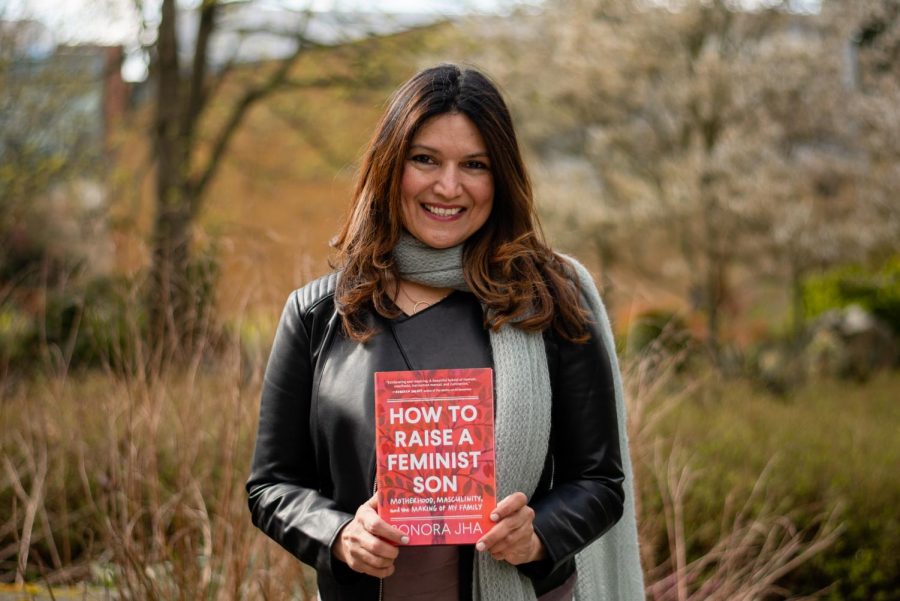
INTERSECTIONALITY IN FEMINISM. I am writing this in upper case as this is the most important feature that this book has and what makes it a manifesto for the most modernist view that feminism has now metamorphosed into: intersectional feminism and intersectional feminists. Now why this new addition?
Intersectionality is important. When sexual orientations are more incredibly diverse, when groups, castes and creeds which have been discriminated against for long are now finally raising their voices, feminism needs to step up. Feminism now needs to add trans women’s voices, voices of women of colour, voices of Dalit women, and voices that have been among the suppressed of the suppressed.
When Adichie spoke with ferocity over the oppression of women, over the discrimination females have faced over decades, and later with the same ferocity discarded trans women out of that equation, I do not agree with her feminist manifesto anymore. What Adichie missed in her whole rebuttal of intersectional feminism is that every woman, no matter if she has transitioned to become a woman, if she just identifies as one or if she is one by birth, has faced abuse and discrimination. No one remains unscathed by that. Adichie needs to read Sonora’s manifesto and learn how to include voices of different dissents and identities inside her feminist village.
As a final note to this review, I will say that you can now finally keep down your Adichie’s book of a manifesto of feminism, you can finally have your hands off feminists who don’t include diverse groups and voices— voices which are not white and middle class— and listen to Sonora speak the language of feminism in this book. You can finally step out, hold this close, read it a million times, enact it in reality and step into the light.
Sonora Jha has finally written a book that is now for me my “ultimate feminist manifesto“, no Adichie, no anti-intersectional feminism. Now finally I can read a feminist book, a memoir, a manifesto that doesn’t discriminate, just empowers and powers and powers.
About the author(s)
Fat, neuro-diverse, and queer are the foremost words Sahil uses to describe themselves. A full-time undergraduate student of Economics at the University of Delhi, Sahil is a Laadli Media awardee of 2023. They are also a recipient of the Reliance Undergraduate Scholar for 2023 and various prestigious fellowships including Global Citizen Year Academy '22 and Civics Unplugged (Civics Innovator Fellowship ’22). Sahil regularly writes for Thred Media, and also for Youth Ki Awaaz as an alumnus of the Justice-Makers WTP ’22.
Sahil is part of UNICEF India's YuWaah Young People's Action Team (YPAT) 2023 and the YLAC Ambassador for Delhi.
